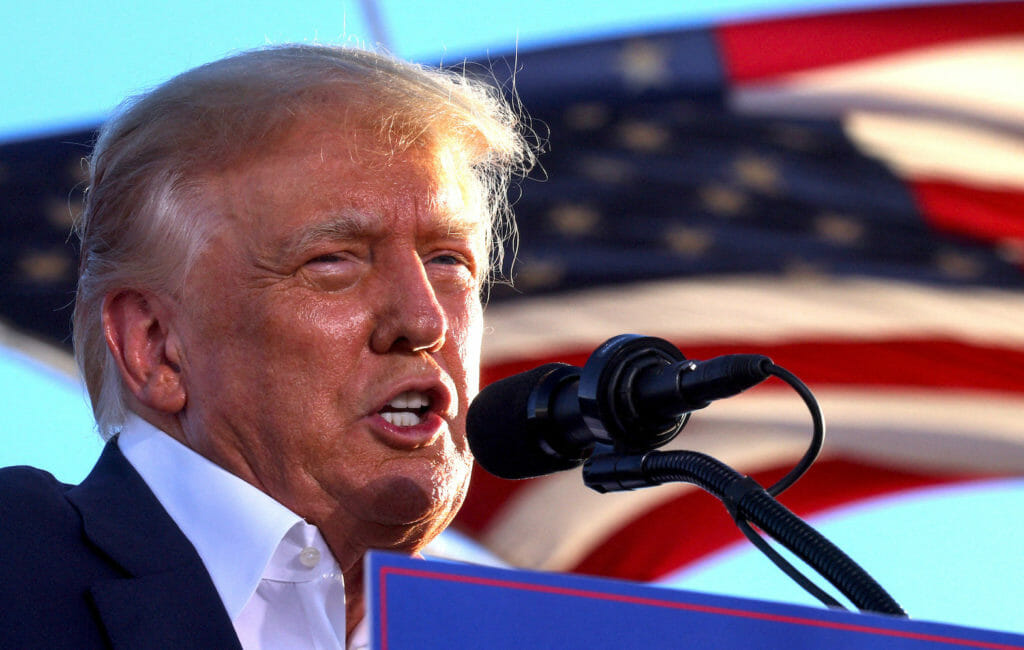Emails show Trump knowingly pressed false voter fraud claims – judge

Former U.S. President Donald Trump speaks during a rally ahead of the midterm elections, in Mesa, Arizona, U.S., October 9, 2022. REUTERS/Brian Snyder
A California federal judge on Wednesday said then-U.S. President Donald Trump had signed a sworn statement asserting that voter fraud numbers included in a 2020 election lawsuit were accurate, despite being told the numbers were not correct.
U.S. District Judge David Carter made the disclosure in ordering lawyer John Eastman to provide more emails to the congressional committee investigating the Jan. 6, 2021, attack on the U.S. Capitol by Trump’s supporters.
Eastman was one of Trump’s attorneys when the former president and his allies challenged his 2020 election loss to Joe Biden.
Representatives for Trump and Eastman did not immediately return requests for comment.
Carter said Wednesday that Trump had “signed a verification swearing under oath” that the inaccurate fraud numbers were “true and correct” or “believed to be true and correct” to the best of his knowledge and belief, when alleging the improper counting of votes in a county in Georgia.
“The emails show that President Trump knew that the specific numbers of voter fraud were wrong but continued to tout those numbers, both in court and to the public,” the judge wrote.
Carter has previously ruled that Eastman and Trump had likely committed a felony by trying to pressure his then-vice president to obstruct Congress.
The ruling was made in a lawsuit filed by Eastman to block disclosure of the emails to the Jan. 6 select committee, following a congressional subpoena.
Carter has previously ordered Eastman to provide over 200 emails to the committee, after the lawyer resisted the subpoena and claimed that the communications were privileged.
The judge said Wednesday that the vast majority of emails still being sought by congressional investigators should not be handed over, as legal protections given to attorneys and their clients apply to the records.
He said eight emails that would normally be shielded under those protections must be given to the committee, after he found that the communications were in furtherance of a crime — one of the few times those legal safeguards can be lifted.
Carter found that four emails show that Eastman and other lawyers suggested that the “primary goal” of filing lawsuits was to delay Congress’s certification of the 2020 election results.
The judge said four other emails “demonstrate an effort by President Trump and his attorneys to press false claims in federal court for the purpose of delaying the January 6 vote.”
Trump and his allies filed over 60 lawsuits challenging the 2020 election, which Biden won, with some complaints alleging voter fraud without evidence to support those claims. Those cases were overwhelmingly rejected by judges, some of which Trump appointed to the federal courts.
The Jan. 6 select committee last week voted to subpoena Trump in its investigation. It is set to issue a report in the coming weeks on its findings.

